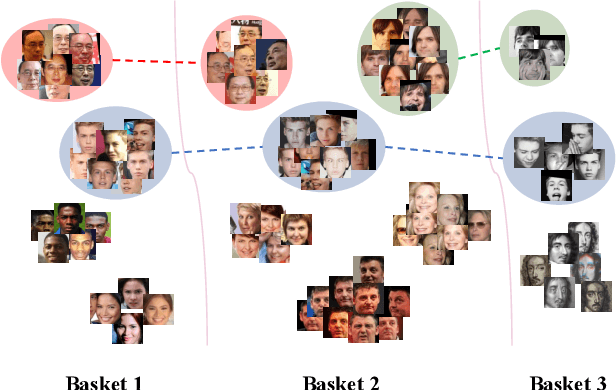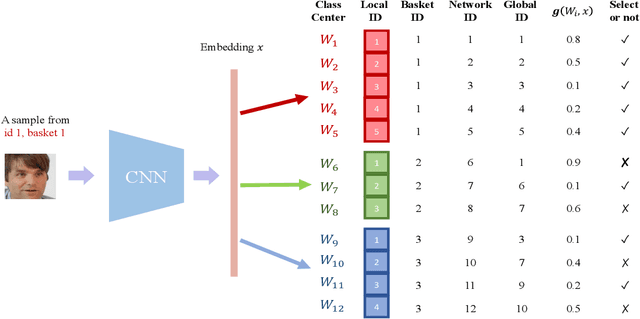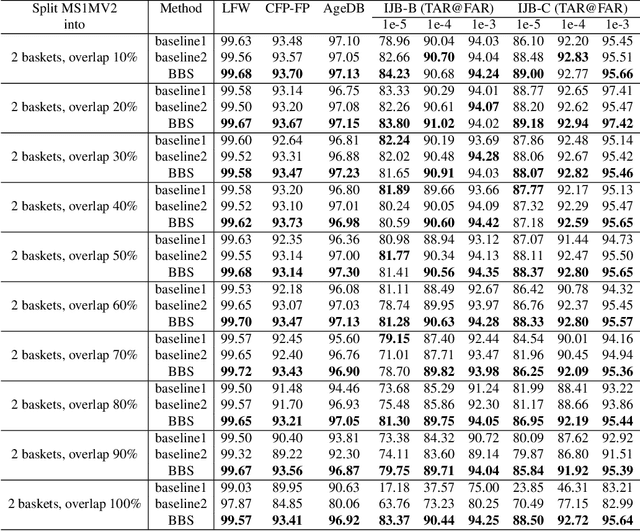Basket-based Softmax
Paper and Code
Jan 23, 2022



Softmax-based losses have achieved state-of-the-art performances on various tasks such as face recognition and re-identification. However, these methods highly relied on clean datasets with global labels, which limits their usage in many real-world applications. An important reason is that merging and organizing datasets from various temporal and spatial scenarios is usually not realistic, as noisy labels can be introduced and exponential-increasing resources are required. To address this issue, we propose a novel mining-during-training strategy called Basket-based Softmax (BBS) as well as its parallel version to effectively train models on multiple datasets in an end-to-end fashion. Specifically, for each training sample, we simultaneously adopt similarity scores as the clue to mining negative classes from other datasets, and dynamically add them to assist the learning of discriminative features. Experimentally, we demonstrate the efficiency and superiority of the BBS on the tasks of face recognition and re-identification, with both simulated and real-world datasets.
 Add to Chrome
Add to Chrome Add to Firefox
Add to Firefox Add to Edge
Add to Edge